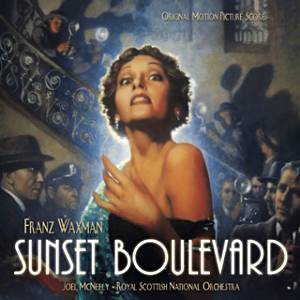Sixty-five years ago, legendary filmmaker Billy Wilder wrote and directed his masterpiece, “Sunset Boulevard,” and now it has been uploaded onto Netflix.
This month, you can appreciate the irony of this “big” picture by streaming it onto your small screen.

And it was “big.” Studio executive Louis B. Mayer was so outraged over this damning exposé of Hollywood that he told Wilder to go back to Germany. Wilder’s family was killed in the Holocaust only a few years prior. Mayer was also Jewish, making his insult all the more hateful.
William Holden stars as a debt-riddled screenwriter named Joe Gillis, who hides from his creditors behind the walls (and the pocketbook) of Norma Desmond, played to such perfection by Gloria Swanson that superstar Barbara Stanwyck kissed the hem of her skirt at the premiere.
Norma Desmond is an aging silent film star who lives a life of delusion, refusing to acknowledge that her glory faded long ago. Swanson herself was from the silent era, and her performance is deliberately and deliciously campy, hearkening back to that exaggerated acting style.
Norma Desmond could not have been portrayed any other way and nobody else could have portrayed her. She keeps Joe trapped inside her house – and her madness – while he writes her (futile) try at a comeback, similar to the basic plot of Stephen King’s “Misery.”
Wilder’s Academy Award-winning screenplay showcases the genius’ trademark humor, as well as his cutting cynicism. “I am big; it’s the pictures that got small,” and “Mr. DeMille, I’m ready for my close-up,” are just two classic lines out of the brilliantly-written script.
In a lot of ways, “Sunset Boulevard” ranks among the films noir (French for “black films”) which sprung out of the post-war American psyche. Even though Hollywood is its setting – a city known for its glitz and glamour – the movie is decidedly dark in tone.
In addition to Swanson’s femme fatale, essential to the film noir, Holden’s pessimistic protagonist provides his voice-over narration throughout the film, but here, “Sunset Boulevard” violates storytelling tradition. It is revealed in the first scene in which Joe is murdered.
Because the remainder of the plot line explores the circumstances leading up to Joe’s death, the film is like an autopsy of Old Hollywood. It was released two years after the Paramount Decree, a Supreme Court antitrust decision divorcing the studios of their theater holdings.

As a result, the studios could no longer afford to finance their “dream factory” studio system, churning out motion pictures on an assembly line, and so the late 1940s and early 1950s saw an end to the Golden Age of Hollywood.
Representing the elegance of Old Hollywood, Norma Desmond comes into conflict with Joe Gillis’ unglamorous New Hollywood lifestyle, where her style no longer belongs. New Hollywood also emerged when the moviemakers disgracefully outed each other as Communists.
Other Old Hollywood relics include Erich von Stroheim, a silent film director who plays Norma’s creepily devoted butler, Max. Buster Keaton, Hedda Hopper, Anna Q. Nilsson, H.B. Warner, Ray Evans, Jay Livingston and, of course, Cecil B. DeMille, all appear as themselves.
Whether you are a lover of all things film history or you are just seeking some quality entertainment, “Sunset Boulevard” has certainly (and timelessly) earned its status as a classic. It pays tribute to a better time – and makes you question if that “better time” ever really existed.
Collegian A&E Writer Hunter Goddard can be reached at entertainment@collegian.com or on Twitter @hunter_gaga.




